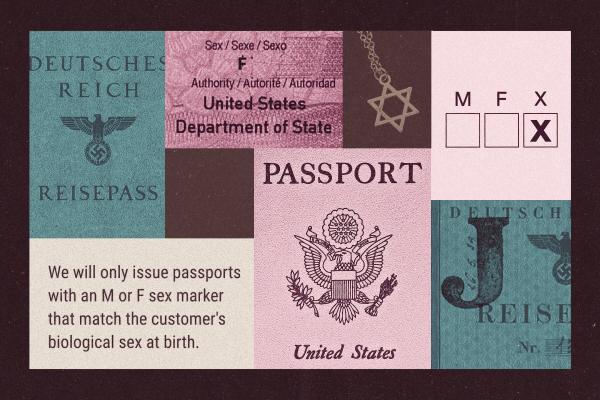Professor Sam Joeckel’s 21-year tenure at Palm Beach Atlantic University ended after a single complaint from a parent who stated that Joeckel was indoctrinating his students. What started out as a typical day in February soon became a nightmare for Joeckel as the dean and provost of the university waited for him outside his classroom to inform him his teaching contract wouldn’t be renewed.
Joeckel has included a racial-justice unit on the syllabi of his English courses for over 12 years. While it hadn’t been a problem in the past, Joeckel alleges the single complaint about the unit inclusion was the cause for his termination. In a lawsuit filed with the Equal Employment Opportunity Commission alleging discrimination, Joekcel’s lawyer Gabe Roberts says PBA’s decision to end his employment was motivated by race, specifically the school’s concerns about his teaching racial justice. Title VII of the Civil Rights Act makes it unlawful for an employment decision to be motivated by a protected characteristic such as race. PBAU has repeatedly declined to comment on the situation, citing legal advice.
Joeckel isn’t an anomaly as teachers and professors all around the country are being reprimanded for teaching on race, gender identity or any other topic that conservatives label “wokeism.” The pejoration of the Black colloquial term “woke” has influenced legislation nationally as Republican lawmakers have passed several laws that prohibit conversations of race and gender in public schools and universities.
Unlike public universities, however, PBAU is a private Christian university and a member of the Council for Christian Colleges & Universities, an organization comprising over 185 largely evangelical institutions around the world.
The CCCU has operated since 1976 as a beacon of support to Christian universities through professional development programs and grants. The organization has four membership categories — governing members, associate members, collaborative partners, and international affiliates; governing and associate members must meet a criterion of “Christian Distinctives & Advocacy,” which requires member institutions to affirm that marriage is between one man and one woman. The criterion also requires member institutions to strive for racial reconciliation and address racial injustice.
In recent years, that sixth criterion has been the subject of some controversy, as some CCCU schools were downgraded from governing members to lower membership levels or left the coalition when the schools allowed hiring faculty in same-sex marriages and relationships.
The same criterion also states that the CCCU “will address issues deemed necessary to advance the cause of Christian higher education, such as immigration reform, prison education, and racial reconciliation initiatives.” But as some Christian schools remove members of their faculty who have taught courses that address racial injustice, the CCCU has been silent.
A representative of the organization told Sojournersvia email that the CCCU “supports our member institutions and their individual missions as they carry out the Lord’s work on their campuses. The CCCU does not make decisions dictating curricula or how it is taught at our campuses.”
Joeckel told Sojourners that the CCCU has been “completely silent and invisible through this whole process.” Joeckel, who has taught at both public and Christian universities, said his experience at Christian universities has had a more tremendous strain on his faith.
“If your religious and political beliefs conform to the conservative bent of the average CCCU institution, then your faith will probably be fine; it may even grow,” Joeckel said. “But if you have any religious or political beliefs to the left of your institution, then you will find yourself in an inhospitable place where it is very easy to grow disillusioned and disheartened.”
History
In 2015, after the Supreme Court made gay marriage legal across the nation, Eastern Mennonite University in Virginia and Goshen College in Indiana, two CCCU schools, changed their policies to allow the hiring of LGBTQ+ faculty prompting discussions of the colleges’ status with the CCCU.
Both schools ended up leaving the CCCU over their new policies. At the time, Goshen College’s president Jim Brenneman told the South Bend Tribune, “We have a difference in understanding about this particular issue. We go our separate way as friends” in reference to the CCCU. Though Goshen and EMU departed amicably, Oklahoma Wesleyan University and Union University left the CCCU, in protest of the Council’s unwillingness to swiftly remove Goshen and EMU.
Although the schools parted ways with the CCCU willingly, the association has weighed in on decisions its member institutions have made as recently as last year. Last November the CCCU placed Pennsylvania school Eastern University’s membership on hiatus after they amended their policy to hire LGBTQ+ faculty.
In a statement at the time, a CCCU spokesperson told Inside Higher Ed that the CCCU is a “members-based association. Our members represent over 35 different denominations. The CCCU supports institutions and their denominational heritage. While Eastern University is on a membership hiatus for this current academic year, we respect their decisions made for the mission and values they represent.”
A statement from the CCCU on any of the recent non-renewals and terminations — or changing the membership status of a school like PBAU — would likely set a precedent for schools that appear to be retaliating or punishing faculty who teach on racial injustice.
Other issues in past year
In April, professor Julie Moore’s contract wasn’t renewed at CCCU member Taylor University in Upland, Ind. after the provost allegedly informed her that her composition course was more akin to a sociology of race class and there had been complaints from students. Moore shared in an online statement that although she has been intertwining topics of race into her writing classes for years, she had never received a formal complaint from a student and that race was not the only topic discussed in her classes. Like Joeckel, Moore referenced historian Jemar Tisby, author of The Color of Compromise, during her lectures. Tisby, who has been targeted by many conservative white evangelicals for his firm stance against white Christian nationalism, offered his online platform to both professors to shine a light on their stories.
Moore originally agreed to an interview with Sojourners but later withdrew her interview citing an agreement with Taylor, saying that the two had resolved their differences.
At Houghton University, another CCCU school, Raegan Zelaya and Shua Wilmot, two former residence hall directors, were terminated in April after refusing to remove their gender pronouns from their email signatures. Both Zelaya and Wilmot stated in a YouTube video that including their pronouns was an effort to be inclusive, but that it also helped them to not be misgendered as they both have unisex names.
While a spokesperson of the university told the Los Angeles Times that “Houghton University has never terminated an employment relationship based solely on the use of pronouns in staff email signatures,” Zelaya and Wilmot alleged in their video that the university cited their refusal to remove their gender pronouns as one of two reasons for both of their terminations. (Wilmot said he was also fired for sending an email to Wesleyan Church leaders that criticized the church’s explanation of its views on gender identity and expression. Zelaya was told she was also fired for criticizing the school’s decision to close the campus multicultural center.)
The university had recently amended its email signature policy for uniformity among its staff. However, Zelaya and Wilmot said they included links in their signature to schedule meetings, which wasn’t a part of the new email format, and were only reprimanded for the inclusion of their gender pronouns.
Zelaya and Wilmot could not be reached for an interview.
This January a federal court ruled in favor of religious colleges’ right to uphold their beliefs regarding sexual morality while allowing them to continue to receive federal financial assistance, in Hunter v. Department of Education,where the CCCU joined the suit to protect religious schools right to upholf those beliefs.
The American Association of University Professors, a secular organization made up of academic professionals all over the U.S., heard both Joeckel and PBA’s sides of the story and issued a letter to the two parties censuring the university and urging them to rescind their termination, according to the AAUP.
In one of the three letters the AAUP issued to the university and obtained by Sojourners via email, they stated that “the administration terminated Professor Joeckel’s appointment without affording him a hearing before an elected faculty body in which the administration bears the burden of demonstrating adequate cause.”
It’s unclear whether Joeckel’s refusal to go silently as he continues his fight will inspire other professors at CCCU member schools to be more vocal about unfair treatment.
Got something to say about what you're reading? We value your feedback!







